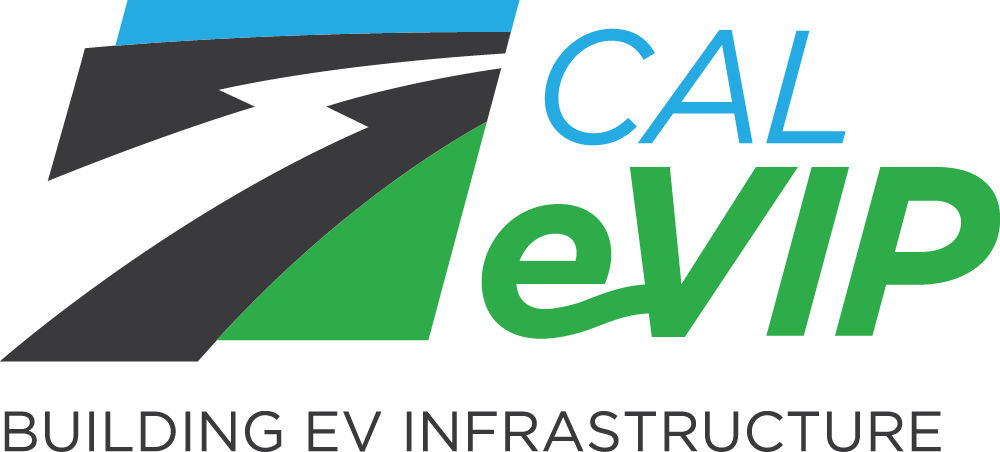Planning Resources
EV Charging Basics
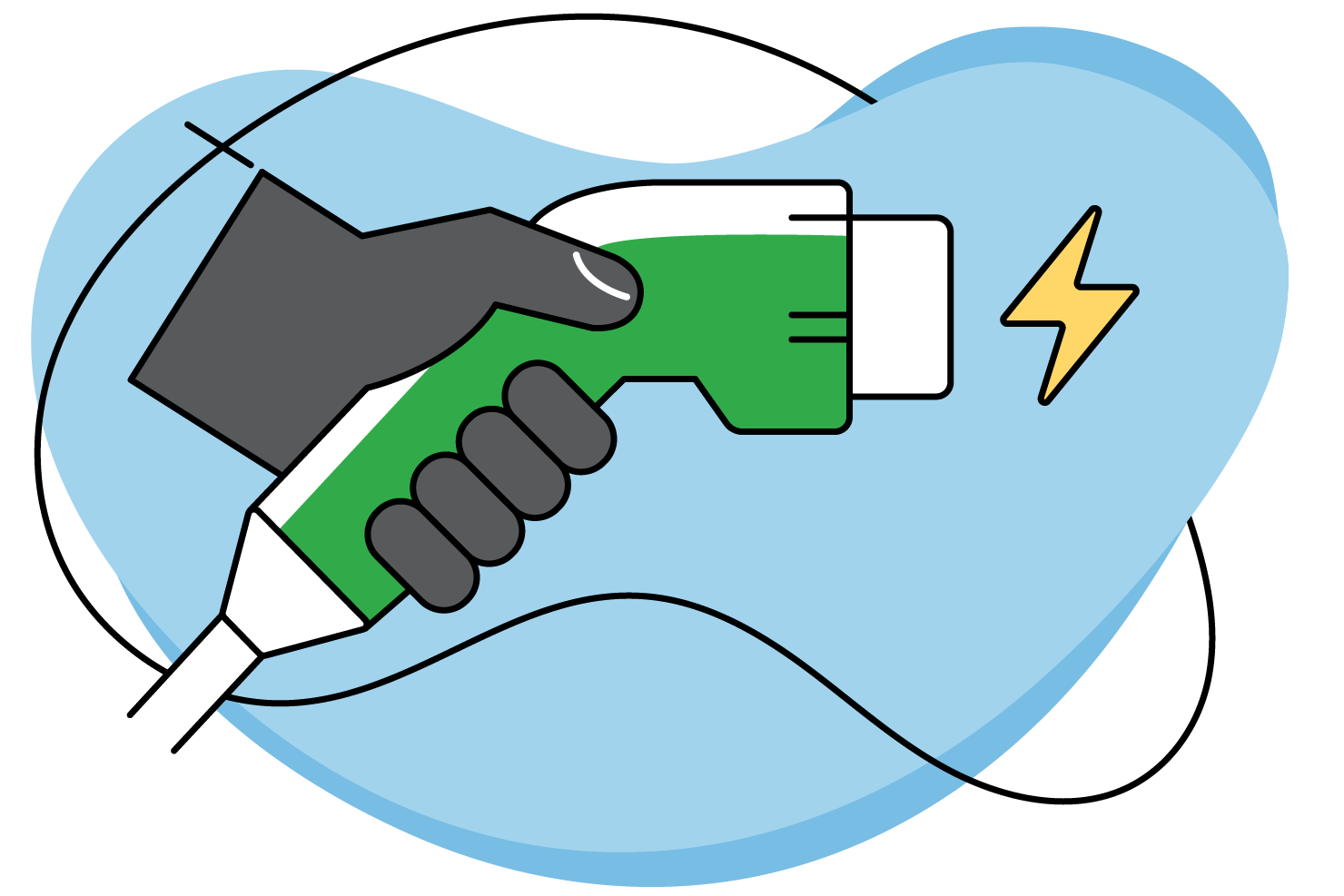
EV Charger Types
EV chargers are classified into three categories: Level 1, Level 2 and direct current (DC) fast chargers.
Important differences include:
- Input voltage. This is how much power a charger requires to operate and is expressed in volts.
- Power output. This is how much power a charger can generate and is expressed in kilowatts (kW).
- Charging speed. This is the number of miles added to the EV’s battery per hour of charging and depends on the charger’s power output.
- Equipment and installation cost. While basic EV chargers are inexpensive and can be plugged into a standard outlet, others have higher upfront equipment prices and must be installed professionally by an electric vehicle service provider (EVSP).
- EV power intake. Depending on your EV, the power output pulled from a charger (in kW) may be limited by how much the EV’s battery can withstand. Check your vehicle’s specifications to know which charging level your vehicle can use.
Numerous manufacturers produce EV chargers, with a variety of products, price points, applications and functionality. Because of these differences, it is important to choose an EV charger that fits your intended use and budget.
Direct Current Fast Charging
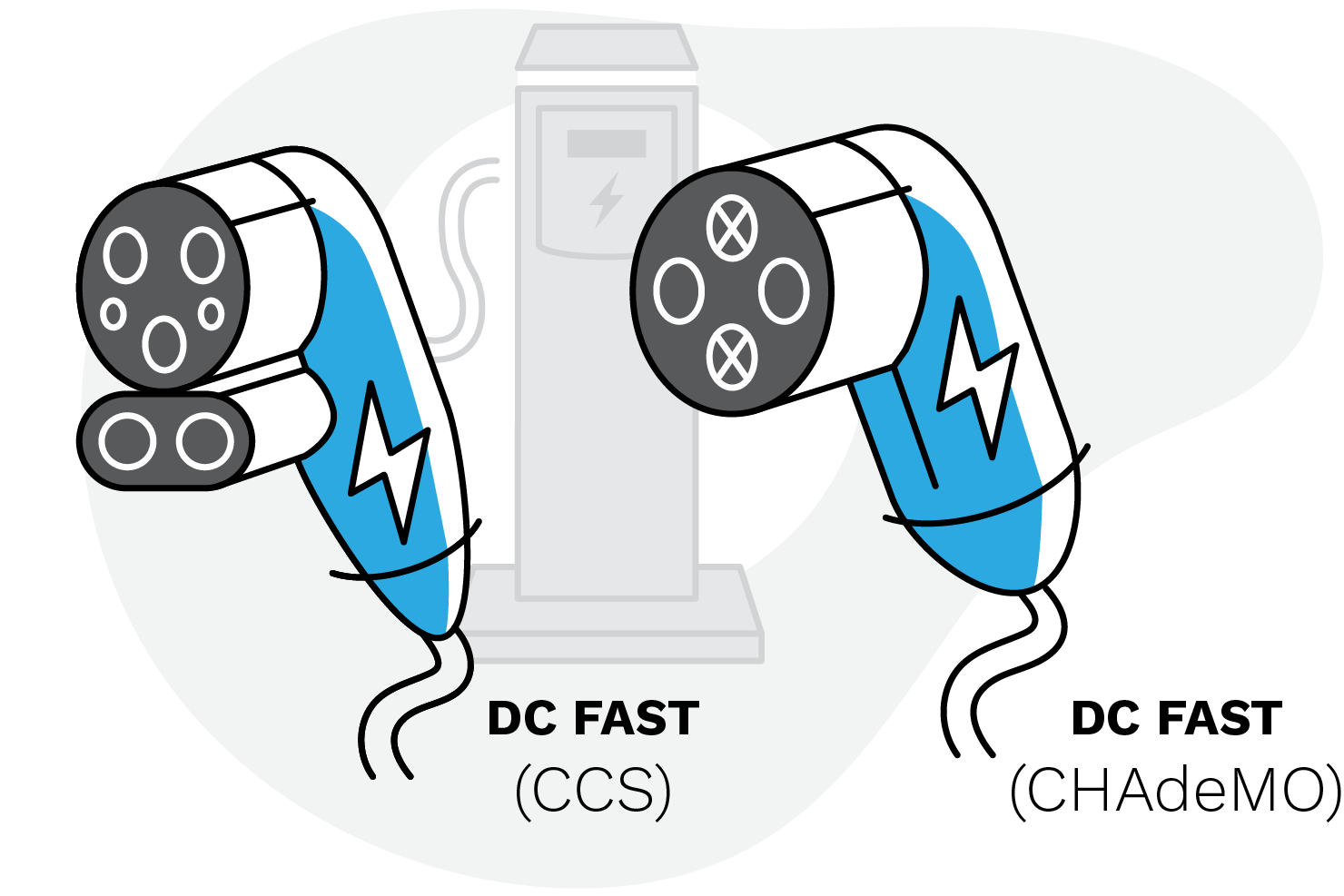
How fast is DC fast charging?
Depending on the EV, DC fast chargers can currently produce a 10-80% charge for a 300-mile range battery in approximately 20 minutes (~540 miles of electric drive per hour of charging).
What is the input voltage for a DC fast charger?
Currently available DC fast chargers require inputs of at least 480 volts and 100 amps, but newer chargers are capable of up to 1000 volt and 500 amps (up to 360 kW).
How much do DC fast chargers cost?
A CALeVIP Cost Data analysis found that the unit cost per charger for rebate recipients ranged from a minimum of $18,000 to a maximum of $72,500. The mean and median unit cost per charger was $29,135 and $23,000, respectively.
In addition to higher equipment costs, DC fast charger installations require a commercial electrician from the initial planning phase due to the electrical load and wiring requirements.
Is a DC fast charger the right EV charger for me?
DC fast chargers are the highest-powered EV chargers on the market. They often are used as range extenders along major travel corridors for long-distance trips and in urban environments to support drivers without home charging or very high mileage drivers. At current charging speeds, they are ideal for places where a person would spend 30 minutes to an hour, such as restaurants, recreational areas and shopping centers.
It is important to note that not every EV model is capable of DC fast charging, and therefore, they cannot be used by every EV driver. Further, DC fast chargers have multiple standards for connectors, whereas there is only one common standard for Level 1 and 2 charging (SAE J1772). DC fast chargers have three types of connectors: CHAdeMO, CCS and Tesla, though CCS is increasingly becoming the industry standard.
Level 2 Chargers
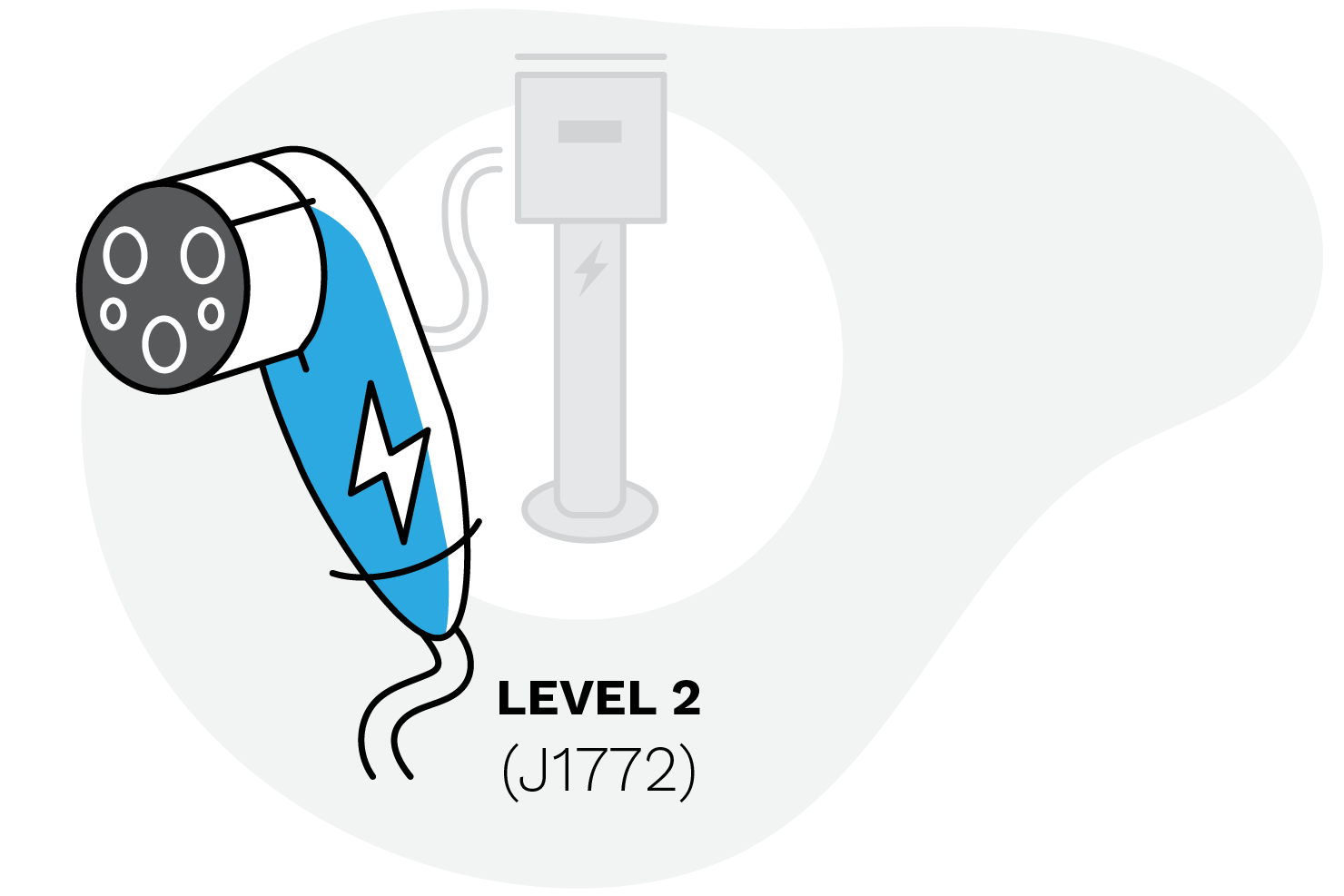
How fast is Level 2 charging?
A Level 2 charger can currently produce a full charge for a 300-mile range battery in about 6-8 hours and is perfect for destination and overnight charging.
What is the input voltage of a Level 2 charger?
Level 2 chargers typically require 220V or 240V service.
What is the power output of a Level 2 charger?
Level 2 chargers are available with a variety of power outputs from 3 kW to 19 kW, which can sometimes be adjusted.
How much do Level 2 chargers cost?
CALeVIP Cost Data show that rebate recipients reported average L2 equipment costs ranging from $685 to $6,626 per connector. The mean and median were $2,976 and $2,884 per connector, respectively.
Is a Level 2 charger the right EV charger for me?
Level 2 chargers are typical solutions for residential and commercial/workplace settings. Most offer higher power output than Level 1 chargers and have additional functionality.
Non-networked vs. networked chargers
In general, Level 2 chargers are distinguished between non-networked chargers and networked chargers.
Networked chargers have advanced capabilities, such as charge scheduling, load management and demand response. They are more common in commercial/workplace settings where payments are required or at multiunit dwellings (MUDs) where the property’s electricity bill is shared by multiple residents.
They may be designed for indoor or outdoor use (e.g., NEMA 3R, NEMA 6P, NEMA 4x rated).
Some models of networked chargers also can limit charging to certain hours, which allows the operator to maximize a time-of-use (TOU) electricity rate structure and only allow charging when electricity is the cheapest (usually sometime between 9 p.m. and 6 a.m.). This type of control also increases the likelihood of participating in utility demand response programs.
Some of the enhanced features of a networked Level 2 charger include remote access/control via Wi-Fi or cellular connection, access control/ability to accept multiple forms of payment, load balancing across multiple chargers and more. Additionally, California will soon begin allowing the use of submeters already embedded within networked chargers to bill electricity use. For more information on submetering, visit the California Public Utilities Commission (CPUC) website.
Non-networked Level 2 chargers are used both in single-family residences and MUDs. They may be designed for indoor or outdoor use (e.g., NEMA 3R, NEMA 6P, NEMA 4x rated). Non-networked Level 2 chargers are useful for installations at MUDs or commercial sites that are powered by the residents’ or tenants’ subpanels.
In this case, any electricity used by the chargers will be charged to the individual’s electricity bill, thus eliminating the need to separately meter the chargers. Further, when electrical capacity is available, non-networked Level 2 chargers are useful for site hosts that need higher power than Level 1 charging but do not have a large budget.
Level 1 Chargers
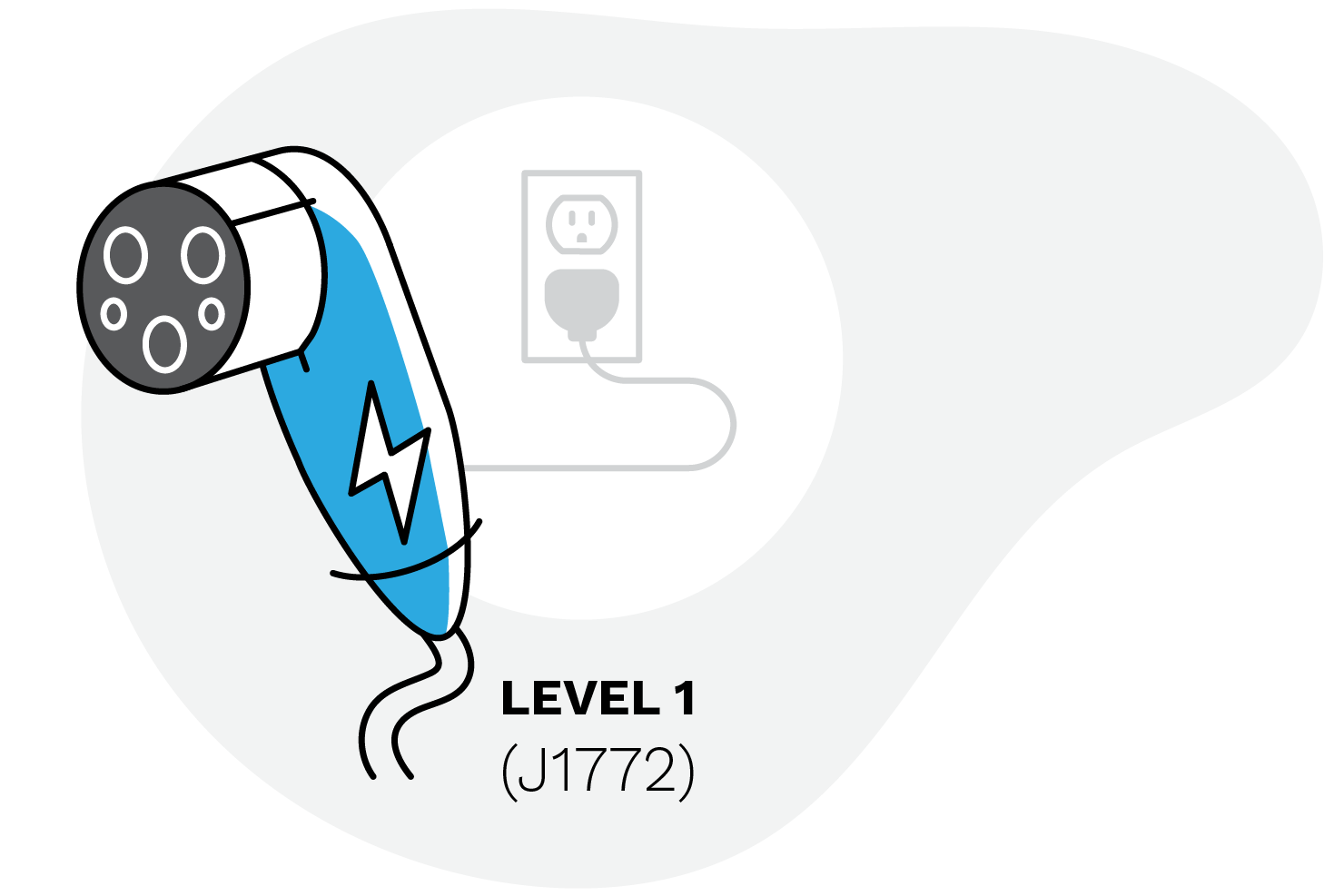
How fast is Level 1 charging?
A Level 1 charger is estimated to deliver 3.5 to 6.5 miles of range per hour of charging. This type of charging takes the longest and is used primarily as an additional, emergency or backup charging solution and for people who can use the charger overnight. Level 1 chargers are not eligible for CALeVIP rebates.
What is the input voltage of a Level 1 charger?
Level 1 charging uses a standard 110V or 120V outlet, enabling EV drivers to use them almost anywhere.
What is the power output of a Level 1 charger?
Level 1 charging power output varies is typically between 1-2 kW of continuous power – approximately the same amount of power as your microwave!
How much do Level 1 chargers cost?
Most EVs come with a manufacturer-branded Level 1 cord set. There are a few third-party manufacturers of Level 1 chargers, most of which are designed for residential use and cost an average of $596 to $813 per charger, according to the International Council on Clean Transportation.
Is a Level 1 charger the right EV charger for me?
Level 1 charging can be a viable solution in multiunit dwellings (MUDs), like apartment complexes or condominiums, and some workplaces. In MUD settings, most Level 1 charging is conducted from existing 110V or 120V outlets in the parking lot or personal garages/carports of residents. When new charging installations are planned, a higher output 220V or 240V circuit is often more cost-effective as it offers greater charging capacity for an equivalent installed price.
Supercharge Your EV Charging Project
EV Charging Station Permitting Guidebook
Learn about EV charging planning, permitting, accessibility and grid connection standards.
